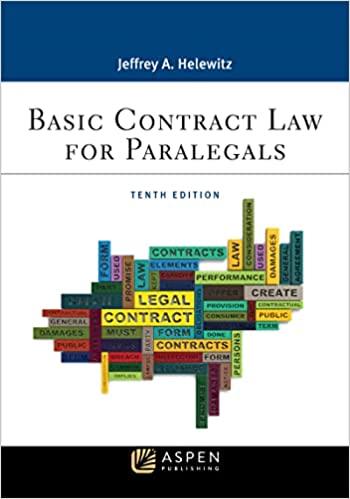Question
An engineer had formerly been involved with manufacturing nuclear reactor parts that were to be put into US Navy vessels. However, he was fired after
An engineer had formerly been involved with manufacturing nuclear reactor parts that were to be put into US Navy vessels. However, he was fired after superiors heard he had been complaining to coworkers about quality control problems he felt he had observed. Such complaints were determined that these complaints were probably breaking the company's Navy contract. Subsequently, the engineer was fired. The engineer brought suit against the company for wrongful discharge in 2005. However, he brought suit in federal court. His reasoning for suing in federal court was that the firing violated two federal statutes. Both statutes banned the submission of untrue claims to the military or federal government. Generally, these statutes concern fraud in government contracting, although the engineer felt that his firing could be loosely linked to government statutes. A wrongful discharge suit, however, is generally subject to state law. Therefore, the company attempted to move the suit from the federal court to a state court, arguing that the federal court had absolutely no jurisdiction over the case.
Which court has jurisdiction? Support your answer
Step by Step Solution
There are 3 Steps involved in it
Step: 1

Get Instant Access to Expert-Tailored Solutions
See step-by-step solutions with expert insights and AI powered tools for academic success
Step: 2

Step: 3

Ace Your Homework with AI
Get the answers you need in no time with our AI-driven, step-by-step assistance
Get Started


